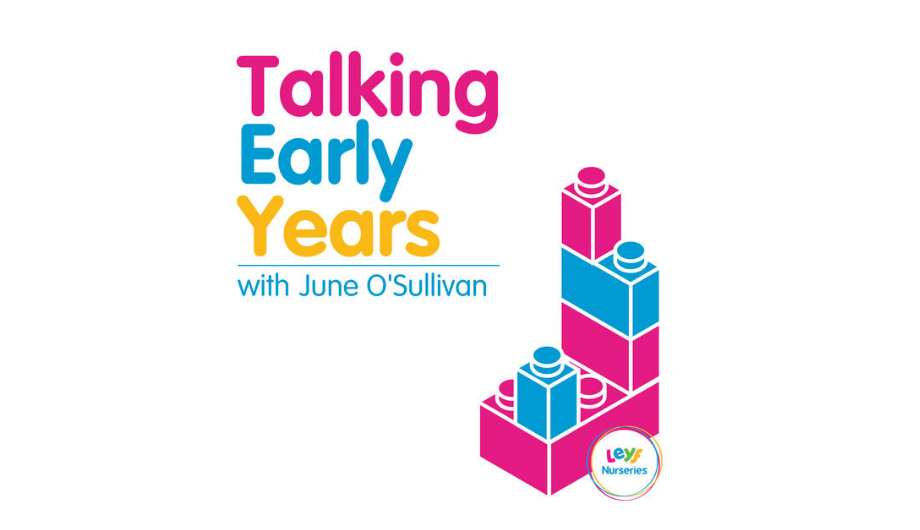
Talking Early Years: June O’Sullivan and Krupesh Hirani
I kicked off this year’s podcast chatting to the well-informed Krupesh Hirani, London Assembly Member for Brent and Chair of the London Assembly Health Committee and the Health…
June 9th 2020
To mark Empathy Day (9 June), we are proud to be launching our Standing Tall for Early Years campaign – with a call for ALL Early Years settings across the UK to join together in planting sunflower seeds with children and celebrate the sector’s move towards a fresh new chapter – especially after a turbulent few months.
We also want to use this moment to champion the importance of empathy – a word we often use in Early Years. We translate it as kindness when we use it with the children – “Be kind”, “That was kind” (as a child cuddles his friend who is sad that his Daddy is leaving), “Shall we be kind to the worm…?”
For adults, it is much more about being able to walk in someone else’s shoes, seeing things from another person’s perspective and being able to respond appropriately. It’s central to people’s emotional intelligence and I think it is essential to leadership success.
Empathy is shaped by a range of factors, genetics, temperament and environment. The harmonious relationships we create in the Early Years are essential because children learn empathy through experiencing their own secure loving relationships, social referencing and imitating adults’ gestures and facial expressions. So, stop snarling!
(Thank you Fashion Enter for making us these beautiful Sunflower face masks to keep our staff safe when travelling to and from work)
We teach children empathy by helping them name feelings and the impact of their actions on the feelings of others. We help them develop the capacity to forgive.This is alongside children beginning to understand they are separate people in their own right. Toddlers are often branded by negative language such as “toddler taming” and “terrible twos” but toddlers can learn to be very sensitive to others and, with the right guidance and time, they begin to learn the complex skill of empathy. In fact, toddlers can be much more empathetic than adults!
COVID-19 has brought out the good and bad in everyone. We have celebrated the power of kindness and empathy. Stories were shared widely of how people supported neighbours and vulnerable citizens and clapped for carers each week. Take a look at @storyterrace on Twitter and read my interviews with a range of unsung heroes.
And it isn’t just human kindness. Many have enjoyed the quiet streets and the lack of pollution during lockdown. We have reignited the inner joy of listening to birdsong, walking around our neighbourhoods discovering little green spaces, and breathing in the calm. Much was talked about a “new normal” and a refusal to go back to our wasteful and selfish ways. Hence, the anger and despair felt when people fly tipped or trashed beautiful spots as lockdown eased and the new normal seemed to be slipping away.
However, it’s not all hopeless. Stepping into other shoes has seen people respond powerfully to situations such as the crackdown in Hong Kong and the brutal death of George Floyd. The lack of kindness and the failure of empathetic leadership to create fair systems has lit a fire across the belly of America and other parts of the world.
But what has this got to do with Early Years? EVERYTHING – because we play a key role in teaching empathy both through demonstration and modelling language and behaviour as well as creating the right environment. As Early Years teachers we have an amazing opportunity to mould the next generation and teach them love and friendship so that they carry these values through school and into adulthood. This speaks to the very heart of our mission to change the world one child at a time. Our role during COVID-19 has demonstrated we have much to offer the national infrastructure as well as our support for the nations’ children and parents. We need to celebrate this under the glorious smile of the sunflower.
Let’s all unite in planting sunflower seeds with children and shine much-needed light on the great work we all do. Here is a little song to cheer you as you plant. Sing out loud.
Hints and tips…
Sunflowers can be sown straight into the ground where they are going to flower – so make sure you use a trowel to remove any weeds from around the area before planting.
Find a suitable spot where they will get 6-8 hours sun per day – this is what they need to grow successfully.
Rake the soil to a fine tilth (a fine crumbly texture) and make some drills 12mm deep. Leave a 10cm space between each seed if you are sowing more than one.
Place the seed(s) in carefully and cover up with soil. Don’t forget to water the seeds gently.
Be careful as slugs and snails like to eat new shoots. You may want to protect the seedlings by cutting the top off a plastic bottle and placing it over your seedlings.
As your sunflower begins to grow taller than you, you will need to help support the stem by placing a cane near the stem and loosely tying it to the plant with string.
Watch your sunflower grow and grow and grow…
To get involved with Standing Tall for Early Years, simply plant your sunflowers seeds with the children and then post photos of the sunflowers growing. Make sure you include a tape measure to record how tall they are – @leyfonline using the hashtag #standingtall4EY
A prize will be awarded for the tallest towering sunflower by LEYF’s green-fingered garden expert and co-author of 50 Fantastic Ideas for Nursery Gardens: Clodagh Halse.

I kicked off this year’s podcast chatting to the well-informed Krupesh Hirani, London Assembly Member for Brent and Chair of the London Assembly Health Committee and the Health…

When we were told by the Prime Minster on the 10th May that we would be able to open on the 1st of June we began to plan how we…

The Covid -19 pandemic has introduced us to some new words such as furlough and serology which describe specific action. But alongside those real words we have also been introduced…